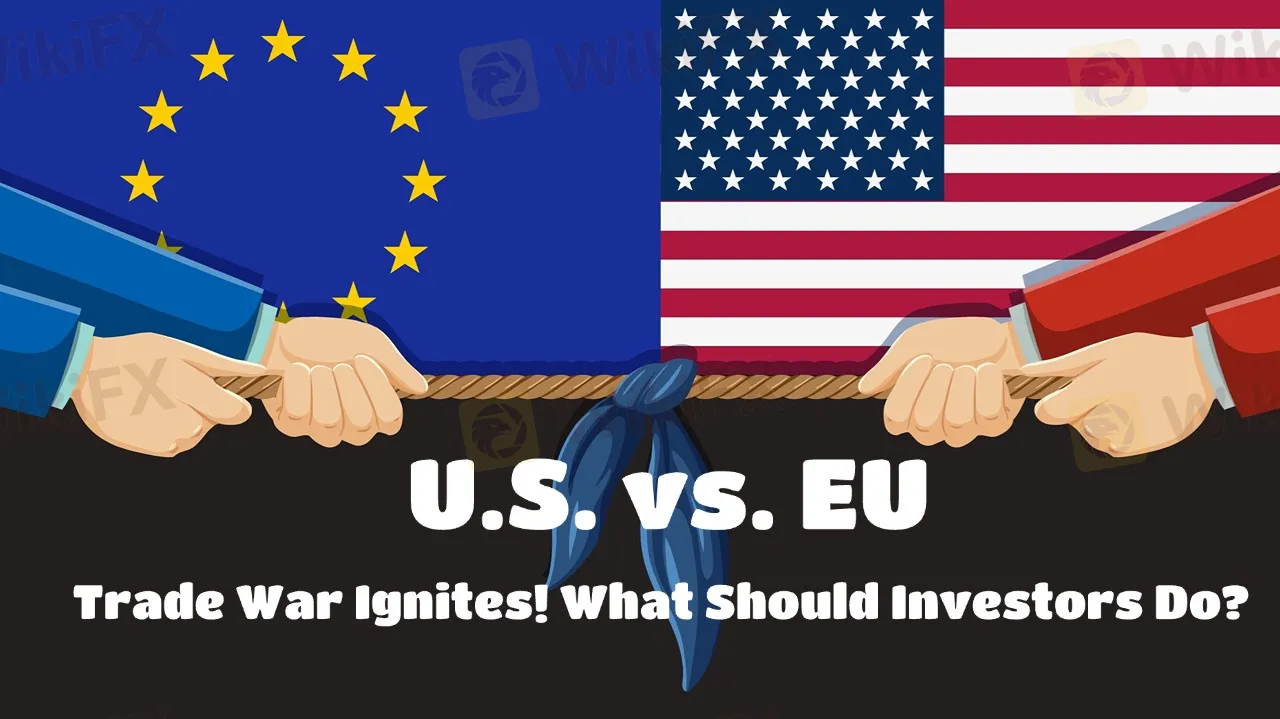简体中文
繁體中文
English
Pусский
日本語
ภาษาไทย
Tiếng Việt
Bahasa Indonesia
Español
हिन्दी
Filippiiniläinen
Français
Deutsch
Português
Türkçe
한국어
العربية
U.S.-EU Trade War Escalates: What Should Investors Do?
Abstract:The U.S.-EU trade war has officially begun, with escalating tariffs shaking the markets. Investors face significant challenges—how can they find opportunities amid the turmoil?

As the U.S. imposes a 25% tariff on imported steel and aluminum, the EU quickly retaliates with plans to impose tariffs on $283 billion worth of U.S. goods, set to take full effect in April. This tariff battle has already impacted market sentiment, with the euro slightly rising to $1.09 against the dollar.
Investors should brace for market volatility and closely monitor affected industries to adjust their strategies accordingly.
The trade war not only affects transatlantic trade but also disrupts global supply chains. The European steel and aluminum sectors face dual challenges: declining exports and increased competition from redirected U.S. products flooding the European market. Additionally, rising production costs in the U.S. could lead to higher consumer prices, further dampening market confidence.
Future Challenges and Investor Strategies
Given the current situation, investors should closely watch U.S.-EU negotiations and remain cautious about risks arising from market uncertainties. In the short term, industries affected by tariffs may experience price fluctuations, while sectors like energy and technology could benefit from trade shifts. To navigate the global market turmoil, investors must stay flexible in asset allocation to mitigate potential losses and seize emerging opportunities.

Disclaimer:
The views in this article only represent the author's personal views, and do not constitute investment advice on this platform. This platform does not guarantee the accuracy, completeness and timeliness of the information in the article, and will not be liable for any loss caused by the use of or reliance on the information in the article.
Read more

No Regulation, Revoked Licence: Is Tradehall Safe to Use?
In the fast-growing world of online trading, safety and regulation must always come first. Traders need to choose brokers that are properly licensed and follow the rules. Sadly, not all brokers meet these standards, and Tradehall is a clear example of this.

Retirement Dreams Shattered: Don't Do This To Yourself!
Two retired Malaysian men have collectively lost more than RM1.14 million to fraudulent investment schemes promoted on social media platforms.

Markets4you vs. IronFX: Which Broker Offers a Safer, Smarter Trading Experience?
Choosing the right forex broker is more than just finding low spreads or high leverage. Traders must consider regulation, platform quality, account types, and overall trustworthiness. In this comparison, we look at Markets4you and IronFX, which are two brokers with very different strengths and risks.

Markets4you Adds Global Stocks with New PAMM Program
Markets4you adds 20+ new global stocks and introduces the PAMM Partner Program, marking key milestones for 2025 with enhanced Forex trading opportunities.
WikiFX Broker
Latest News
Inside MBI: The Billion-Dollar Ponzi Scheme That Shook Malaysia
ZFX: A Closer Look at Its Licences
Should you buy or sell US dollars in the next three to six months?
Tradehall Broker Review 2025: Read Before Trade
XM Rolls Out New Forex Trading Competition Platform for 2025
Tether Freezes $12.3 Million in USDT Over Money Laundering Concerns
No Regulation, Revoked Licence: Is Tradehall Safe to Use?
Danske Bank expects the European Central Bank to make its final interest rate cut in September.
EU Regulators Imposed Over €71M in Sanctions in 2024, ESMA Calls for Enforcement Convergence
MiCA Unlocks EU Crypto Market, but National Tensions Rise as Gemini and Coinbase Near Approval
Currency Calculator


